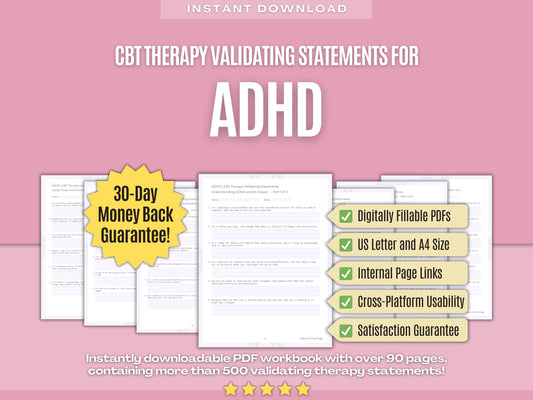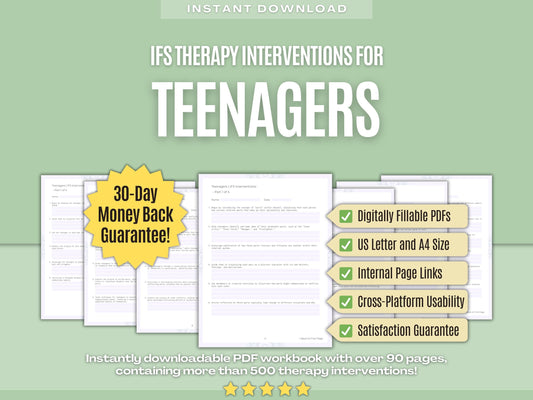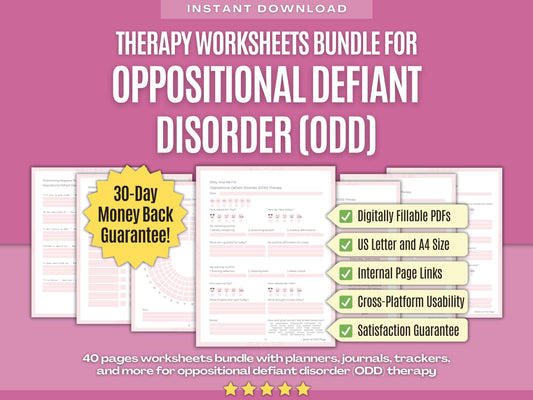Elevate Your Therapy and Guide Your Clients to Inner Healing with Our Anorexia Validating Therapy Statements! ✨
1. Beginning Anorexia Therapy
- Acknowledging the decision to start therapy for anorexia is a significant step towards embracing change and prioritizing your well-being.
- Your courage in confronting your struggles with anorexia head-on is commendable and serves as a foundation for our work together.
- Your willingness to engage in therapy demonstrates a commitment to growth and healing, and I'm here to support you every step of the way.
- Remember that progress in therapy is not about perfection but about embracing the journey towards a healthier relationship with food and yourself.
- It's okay to feel overwhelmed or unsure about what to expect from therapy; we'll take things at a pace that feels comfortable for you.
- I want you to know that our therapeutic relationship is built on trust, empathy, and collaboration, and your voice will always be heard and respected.
- It's important to approach therapy with self-compassion and patience, understanding that healing takes time and effort.
- Your commitment to your own recovery journey is inspiring, and I'm here to provide guidance and support along the way.
- Your honesty and vulnerability in sharing your experiences with anorexia create a safe space for exploration and growth.
- I want to assure you that you are not alone in this journey; I'm here to walk alongside you and offer support and encouragement.
- Remember that you are deserving of compassion, understanding, and healing, regardless of any challenges you may face.
Need more? Find all 500+ Validating Therapy Statements for Anorexia Therapy in our Digital Workbook!
2. Anorexia Psychoeducation
- Understanding the complexities of anorexia is a crucial aspect of our work together, and I commend your willingness to engage in psychoeducation.
- It's important to recognize that anorexia is not simply about food or weight; it often stems from deeper emotional, psychological, and societal factors.
- Recognizing the genetic and biological components of anorexia can help destigmatize the disorder and emphasize the importance of seeking professional support.
- Learning about the psychological mechanisms, such as perfectionism and control, that drive anorexic behaviors can empower you to challenge and change them.
- Recognizing the ways in which anorexia impacts relationships and social functioning can foster empathy and understanding in your interactions with others.
- Learning about the long-term effects of anorexia on physical and mental health can motivate you to engage fully in the recovery process.
- Understanding the cycle of restriction, bingeing, and purging in anorexia can provide insight into the patterns of behavior that maintain the disorder.
- Recognizing the ways in which anorexia impacts cognitive functioning and decision-making can help you develop strategies to challenge distorted thoughts and beliefs.
- Understanding the prevalence of co-occurring disorders, such as anxiety, depression, and substance abuse, in anorexia underscores the importance of comprehensive treatment.
- Recognizing the importance of multidisciplinary treatment teams, including therapists, nutritionists, and medical professionals, in addressing anorexia emphasizes the comprehensive nature of recovery.
- Learning about the concept of recovery in anorexia, as opposed to mere symptom management, can inspire hope and motivation for lasting change.
Need more? Find all 500+ Validating Therapy Statements for Anorexia Therapy in our Digital Workbook!
3. Mindfulness for Eating Disorders
- Embracing mindfulness in the context of eating disorders can offer profound insights into your relationship with food, body, and emotions.
- Mindfulness invites you to observe your sensations of hunger, fullness, and cravings with curiosity and compassion.
- By tuning into your body's signals and cues, mindfulness empowers you to make conscious and nourishing choices around food and eating.
- Through mindfulness, you can cultivate a greater sense of self-awareness and self-compassion, fostering healing and acceptance of your body.
- Practicing mindfulness can help you develop resilience in the face of cravings, urges, and triggers, allowing you to respond skillfully rather than react impulsively.
- Mindfulness offers tools for coping with difficult emotions, such as anxiety, guilt, or shame, without resorting to disordered eating behaviors.
- Mindfulness encourages you to approach your thoughts and feelings with curiosity and openness, allowing space for insight and transformation.
- Mindfulness invites you to let go of the past and future narratives around food and eating, anchoring yourself in the present moment with acceptance and kindness.
- Mindfulness encourages you to explore alternative sources of pleasure and fulfillment beyond food, nurturing a holistic approach to well-being.
- Practicing mindfulness can help you develop a sense of agency and empowerment over your eating behaviors, rather than feeling controlled by them.
- Through mindfulness, you can cultivate self-compassion and forgiveness for any past struggles or setbacks in your journey towards recovery.
Need more? Find all 500+ Validating Therapy Statements for Anorexia Therapy in our Digital Workbook!
4. Dialectical Behavior Therapy (DBT) for Emotional Regulation
- Acknowledging your decision to explore Dialectical Behavior Therapy (DBT) for emotional regulation reflects your commitment to managing the intense emotions often associated with anorexia.
- I want to commend your willingness to embrace new approaches to managing your emotional well-being and building resilience.
- By learning to observe and describe your emotions without judgment, DBT empowers you to develop greater self-awareness and emotional insight.
- DBT encourages you to cultivate mindfulness as a foundational skill for managing emotions, reducing impulsivity, and promoting self-regulation.
- DBT offers practical skills for coping with intense emotions, such as distress tolerance techniques and emotion regulation strategies.
- It's okay to start small and gradually build upon your successes in implementing DBT skills; progress takes time and patience.
- Through interpersonal effectiveness skills, DBT helps you communicate assertively, set boundaries, and navigate challenging relationships without resorting to extremes.
- DBT emphasizes the importance of self-care and self-compassion as foundational elements of emotional regulation and well-being.
- It's important to approach emotional regulation with curiosity and openness, recognizing that each skill you learn offers an opportunity for growth and empowerment.
- I want to reassure you that it's okay to seek support from loved ones or professionals as you navigate the challenges of implementing DBT skills.
- DBT offers tools for building mastery and competence in managing emotions, empowering you to take control of your emotional well-being and life.
Need more? Find all 500+ Validating Therapy Statements for Anorexia Therapy in our Digital Workbook!
5. Interpersonal Therapy (IPT) for Relationship Issues
- Acknowledging your interest in Interpersonal Therapy (IPT) for addressing relationship issues reflects your commitment to exploring the impact of interpersonal dynamics on your journey towards recovery from anorexia.
- I commend your willingness to examine the ways in which interpersonal patterns and conflicts may influence your thoughts, feelings, and behaviors.
- By focusing on the here-and-now interactions with significant others, IPT helps you identify specific relationship patterns that may be maintaining or exacerbating your eating disorder.
- IPT encourages you to explore the ways in which unresolved conflicts, communication difficulties, or life transitions may contribute to your symptoms of anorexia.
- IPT offers practical tools and techniques for improving communication, resolving conflicts, and building more satisfying and supportive relationships.
- It's okay to start small and gradually explore deeper layers of your relationships in IPT; progress often unfolds gradually over time.
- Through role-playing and interpersonal exploration, IPT helps you gain insight into your relational patterns and experiment with new ways of relating to others.
- IPT emphasizes the importance of developing empathy and understanding for yourself and others, recognizing that everyone brings their own struggles and vulnerabilities to relationships.
- It's important to approach IPT with curiosity and openness, recognizing that each session offers an opportunity for insight, growth, and healing.
- I want to reassure you that it's okay to seek support from loved ones or professionals as you navigate the challenges of exploring difficult material in IPT.
- IPT offers techniques for developing assertiveness and setting healthy boundaries in your relationships, empowering you to advocate for your needs and values.
Need more? Find all 500+ Validating Therapy Statements for Anorexia Therapy in our Digital Workbook!
6. Emotion-Focused Therapy (EFT) for Anorexia
- Acknowledging your interest in Emotion-Focused Therapy (EFT) for addressing anorexia demonstrates your commitment to exploring the emotional roots of your struggles and fostering healing from within.
- I commend your willingness to delve into the depths of your emotional experience as part of your journey towards recovery.
- By fostering awareness and acceptance of your emotions, EFT helps you develop greater resilience and adaptive coping strategies in the face of anorexia.
- EFT encourages you to explore the underlying emotional needs and vulnerabilities that may be driving your disordered eating behaviors, helping you address them more effectively.
- EFT offers practical skills for identifying, labeling, and expressing your emotions in a healthy and adaptive manner, rather than suppressing or avoiding them.
- It's okay to start small and gradually explore deeper layers of your emotions in therapy; progress often unfolds gradually over time.
- Through experiential exercises and emotion-focused interventions, EFT helps you connect with and make sense of your emotions, facilitating healing and growth.
- EFT emphasizes the importance of creating a safe and trusting therapeutic relationship, where you can explore and express your emotions without fear of judgment or rejection.
- It's important to approach therapy with openness and curiosity, recognizing that each session offers an opportunity for insight, healing, and transformation.
- I want to reassure you that it's okay to seek support from loved ones or professionals as you navigate the challenges of exploring your emotions in therapy.
- EFT offers tools for processing and integrating difficult emotions, allowing you to release emotional pain and move towards greater emotional well-being and vitality.
Need more? Find all 500+ Validating Therapy Statements for Anorexia Therapy in our Digital Workbook!
7. Psychodynamic Approaches to Eating Disorders
- Acknowledging your interest in psychodynamic approaches to eating disorders signifies your readiness to explore the underlying psychological factors that contribute to your struggles with food and body image.
- I commend your courage in embarking on the journey of self-discovery and insight as part of your healing process.
- By examining the unconscious conflicts, fears, and desires that influence your relationship with food and your body, psychodynamic therapy helps you gain insight into the root causes of your struggles.
- Psychodynamic therapy encourages you to explore the ways in which early life experiences and relational patterns may be impacting your current difficulties with food and body image.
- Psychodynamic therapy offers techniques for accessing and processing unconscious material, such as dreams, fantasies, and memories, to uncover deeper layers of meaning and symbolism.
- It's okay to start small and gradually explore deeper layers of your unconscious in therapy; progress often unfolds gradually over time.
- Through the therapeutic relationship and the exploration of transference and countertransference, psychodynamic therapy helps you gain insight into your relational patterns and dynamics.
- Psychodynamic therapy emphasizes the importance of creating a safe and trusting therapeutic environment, where you can explore and process unconscious material without fear of judgment or rejection.
- It's important to approach therapy with openness and curiosity, recognizing that each session offers an opportunity for insight, healing, and transformation.
- I want to reassure you that it's okay to seek support from loved ones or professionals as you navigate the challenges of exploring unconscious material in therapy.
- Psychodynamic therapy offers tools for processing and integrating unconscious material, allowing you to release emotional pain and move towards greater psychological well-being.
Need more? Find all 500+ Validating Therapy Statements for Anorexia Therapy in our Digital Workbook!
8. Music Therapy for Emotional Healing
- Acknowledging your interest in music therapy for emotional healing demonstrates your openness to exploring the profound impact of music on your healing journey from anorexia.
- I commend your courage in embracing music as a therapeutic tool for navigating the complexities of your emotional experience and fostering healing from within.
- By engaging with music, you can access deep emotional states that may be difficult to access through words alone, facilitating insight, release, and transformation.
- Music therapy encourages you to trust your inner musical instincts and allow the music to guide and support you on your journey of emotional healing.
- Music therapy offers techniques for using music to regulate and modulate your emotional state, helping you find comfort, solace, or catharsis in the sounds and rhythms.
- It's okay to start with simple musical activities and gradually explore more complex emotions and themes as you feel ready and comfortable.
- Through the therapeutic use of music, you can externalize and make sense of your emotions, providing a tangible and audible representation of your inner world.
- Music therapy emphasizes the experience of engaging with music rather than achieving a specific outcome or performance, allowing you to focus on the process of emotional exploration and healing.
- It's important to approach music therapy with an open mind and heart, allowing yourself to be present and engaged in the musical experience without judgment or self-criticism.
- I want to reassure you that it's okay to explore a variety of musical styles and genres until you find what resonates most with you and supports your emotional healing process.
- Music therapy offers tools for connecting with your body and inner sensations, allowing you to explore the physical and emotional aspects of your experiences with anorexia.
Need more? Find all 500+ Validating Therapy Statements for Anorexia Therapy in our Digital Workbook!
9. Wrapping Up Therapy Sessions
- Acknowledging the work you've done in our therapy sessions demonstrates your commitment to your healing journey and the progress you've made.
- I want to commend you for your courage and dedication to your recovery, as each session you've attended has been a step forward in your journey towards healing.
- Your willingness to engage in therapy and explore challenging topics demonstrates your strength and commitment to improving your well-being.
- Your active participation in therapy sessions shows your dedication to understanding yourself better and working towards positive change.
- I want to assure you that it's normal to experience ups and downs in therapy, and that the process of healing is not always linear.
- I want to acknowledge any fears or anxieties you may have about ending therapy, and reassure you that we can work together to ensure a smooth transition.
- I want to express my gratitude for the trust you've placed in me as your therapist, and for allowing me to accompany you on this journey towards healing.
- It's important to celebrate the insights and breakthroughs you've experienced in therapy, no matter how small or seemingly insignificant they may seem.
- Reflecting on the goals you set at the beginning of therapy and how you've worked towards achieving them can provide a sense of accomplishment and pride.
- Your willingness to take responsibility for your own healing and growth is inspiring and demonstrates your empowerment in the therapeutic process.
- I want to reassure you that the progress you've made in therapy will continue to support you as you move forward in your journey towards healing and recovery.
Need more? Find all 500+ Validating Therapy Statements for Anorexia Therapy in our Digital Workbook!
10. Reflecting on Anorexia Therapy Journey
- Reflecting on your journey through anorexia therapy allows you to acknowledge the progress you've made and the challenges you've faced along the way.
- I want to commend you for your courage in confronting difficult emotions and exploring underlying issues related to your eating disorder.
- Your willingness to be open and vulnerable in therapy sessions has created a safe and supportive space for exploration and healing.
- I want to acknowledge any fears or anxieties you may have about ending therapy, and reassure you that the skills and insights you've gained will continue to support you moving forward.
- Reflecting on the coping skills and strategies you've developed in therapy can provide a sense of empowerment and confidence as you navigate future challenges.
- Your commitment to attending therapy sessions regularly and actively engaging in the therapeutic process has been instrumental in your journey towards healing.
- I want to assure you that the insights and skills you've gained in therapy will continue to serve you well as you move forward in your recovery journey.
- Reflecting on the challenges you've faced in therapy and how you've navigated them can provide valuable insights into your strengths and coping abilities.
- Your journey through anorexia therapy is a testament to your courage, strength, and resilience in the face of adversity.
- It's important to recognize the progress you've made, no matter how slow or challenging it may have been at times.
- Reflecting on the connections you've formed in therapy and the support you've received from others can help you feel more grounded and connected as you move forward.
We hope that our validating therapy statements for Anorexia therapy will help you to elevate your therapy practice and guide your clients to inner healing! Do you need more validating therapy statements for Anorexia therapy? Find them all in our Digital Workbook! Or do you have any questions or suggestions for us? Please feel free to contact us at any time!


















